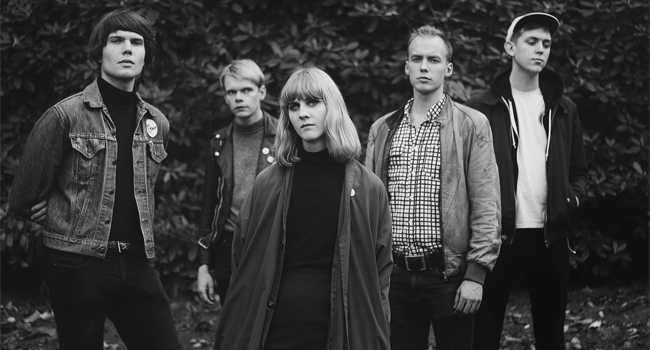There’s a moment in The Lumineers’ debut record. Well, not a moment, it’s a song. It’s called “Classy Girls,” and it’s about a well-intentioned, romantic country boy making a not entirely untoward advance to a member of the titular section of the female crowd. The band execute “Classy Girls” with exactly the efficient, stripped down folk-rock that makes their debut, if anything, a pleasant reminder that this band is going to be quite larger than what they are right now.
But what’s so interesting about “Classy Girls” is the venue that The Lumineers choose to set the song. It’s clearly not recorded live, yet for the first half of the song bandleader Wesley Schultz and his twangy guitar sound like they’re trying to overpower an only casually listening bar crowd.
Presumably Schultz and fellow original Lumineer Jeremiah Fraites have dealt with this environment once or twice in the still short history of the band. But what is interesting about Schultz feeling as if he needed to put in a canned track of people talking at bars to give “Classy Girls” its necessary oomph is a telling damnation and subtle praise of the Lumineers’ formula. Their debut rightly gets compared to UK sensations Mumford & Sons, but there’s an essential difference between the two bands, and “Classy Girls” is the most outright drawing of battle lines. Mumford are a constructed conglomeration of label influences and heavy buzz marketing. And while The Lumineers deserve the same buzzy marketing – more, considering how much better The Lumineers is from Sigh No More – they’re going to get it a different way. The record isn’t as immediate and arresting as Sigh No More; it’s more mature, more contemplative and simple-song driven, where Sigh No More is a headlong dive into fifty minutes of the same raucous folk-rock. Mumford are a better sell in headphones.
The Lumineers, though, are a far more captivating live act.
Now expanded to include a bevy of hand-claps, strings and other accouterment. They dive into bigger venue-themed fare on the record (“Submarine,” which misfires painfully), but as “Classy Girls” evidences, The Lumineers are at their best performing in the most claustrophobic of circumstances. A live session with KEXP-Seattle brought this ever more into focus. While somewhat strangely deciding to not perform the two standouts of the record (“Classy Girls,” “Slow It Down”), both of which are geared for the smallest possible audience, The Lumineers instead show a great amount of maturity and flex their muscles a bit. In the studio as a five piece, the band execute the relatively full-band “Stubborn Love” with exemplary knowledge of the venue they’re playing in. Probably extrapolating a bit too much from geography, but this seems to make sense – Schultz took the band from New Jersey, where you can’t throw a drumstick without hitting another band, to Denver, significantly larger. While some might see this as a cowardly dart from the place where they stood the most chance to make it, Schultz took a calculated risk in creating a band, then moving to a city that fit the sound. In New Jersey, The Lumineers are just another band aping off of the Avett Brothers and Mumford. In Denver, well, they’re The Lumineers.
For all that setup, the band seem to be fully formed to jump to bigger venues. KEXP made note of a number of sold out shows, and Schultz confirmed that some people already know the words to songs that hadn’t been released yet. And while The Lumineers is not the record to take them to that Mumford or Ryan Adams level, it’s also the record that got them into the KEXP recording room, and onto the set of Conan. The charm of The Lumineers is in the maturity in their youth – the man in “Classy Bars” is a fool, but the band telling his story were wise enough to know the proper venue to tell his tale.



